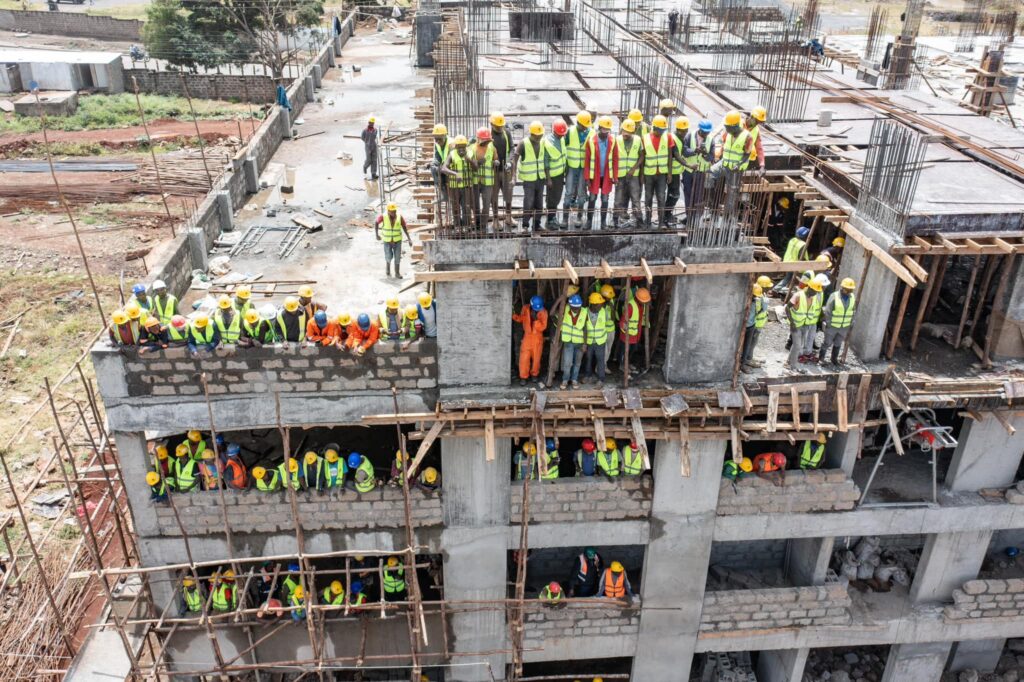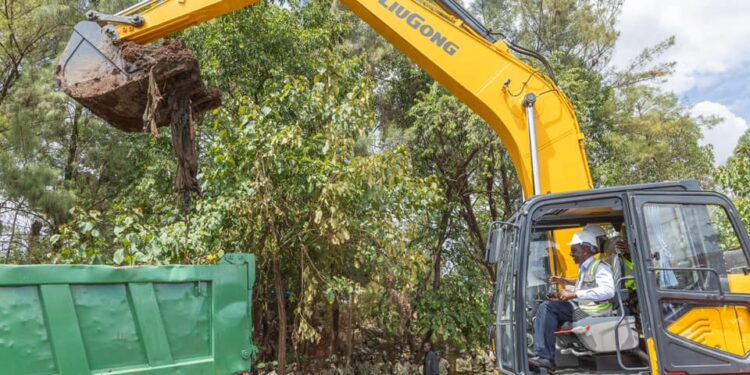President William Ruto’s administration has taken a deliberate and structured approach to addressing the high unemployment rate among Kenyan youth. Among the most ambitious initiatives is the recently launched Nairobi River Regeneration and Engineering Works Programme, a KSh50 billion project designed not only to rehabilitate the Nairobi River but also to provide employment opportunities and enhance urban resilience. This initiative is a testament to the government’s commitment to economic empowerment and sustainable development.
The Nairobi River Regeneration Project aims to create at least 40,000 jobs, significantly expanding the Climate Works Mtaani Initiative, which currently employs 22,000 people. These jobs will primarily be in environmental conservation, waste management, and infrastructure development. The project will involve constructing a 60-kilometer sewer line, developing affordable housing, and implementing flood mitigation measures, all of which will require substantial manpower and expertise.
One of the key aspects of this initiative is its multi-sectoral implementation. The Nairobi Rivers Commission, alongside the ministries of Housing, Environment, and Defence, will oversee the project. By leveraging the expertise of these ministries, the government ensures that the initiative is executed efficiently while maximizing employment opportunities for skilled and unskilled laborers alike. This collaboration underscores the administration’s emphasis on comprehensive and inclusive development.
During the launch of the project, President Ruto reiterated his administration’s commitment to urban renewal and dignified living for all Nairobi residents. He emphasized that creating employment opportunities, especially for the youth, is central to his government’s agenda. He expressed confidence that within the next 24 months, the Nairobi River and surrounding areas will be completely transformed, not only environmentally but also economically.
Beyond environmental restoration, the project integrates key economic and social development components, such as affordable housing and modern markets. These aspects align with Ruto’s broader Affordable Housing Programme, which aims to construct 50,000 homes in reclaimed areas. This initiative will further generate employment in the construction sector, providing work for engineers, masons, electricians, and other artisans, thus boosting local economic activity.

The benefits of the Nairobi River Regeneration Project extend beyond Nairobi, impacting neighboring counties such as Kiambu, Machakos, Kajiado, and Murang’a. The project will enhance waste management, improve sewer systems, and mitigate flood risks in these regions. Such improvements will create jobs in logistics, sanitation, and engineering, reinforcing the administration’s commitment to expanding employment opportunities beyond the capital city.
President Ruto has also emphasized the importance of national unity in driving economic prosperity. He has called upon political leaders, including former Prime Minister Raila Odinga, to collaborate towards a common goal of national development. This inclusive approach fosters a stable political environment, which is essential for sustainable job creation and economic growth.
During his tour of Kamukunji Constituency, the President commended the close working relationship between the National Government and the Nairobi County Government. He highlighted the investment in modern recreational facilities, such as the Desert Grounds in California, as a means of promoting talent development among the youth. Such facilities not only provide recreational opportunities but also create jobs in sports management, training, and event organization.
Education and skill development remain central to President Ruto’s youth empowerment strategy. While visiting Zawadi Comprehensive Primary School, he affirmed his commitment to expanding school feeding programs, particularly in informal settlements. This initiative is expected to boost school enrollment and ensure that young Kenyans acquire the education necessary to compete in the job market. Moreover, by supporting education, the government is indirectly creating employment for teachers, suppliers, and food service providers.
The Nairobi River Regeneration Project is just one of the many initiatives under Ruto’s administration aimed at tackling unemployment. With a focus on infrastructure, environmental conservation, and affordable housing, these projects collectively contribute to economic growth and job creation. As the government continues implementing these strategic programs, the youth remain at the core of Kenya’s development agenda, positioning them as key drivers of national prosperity in the years to come.










